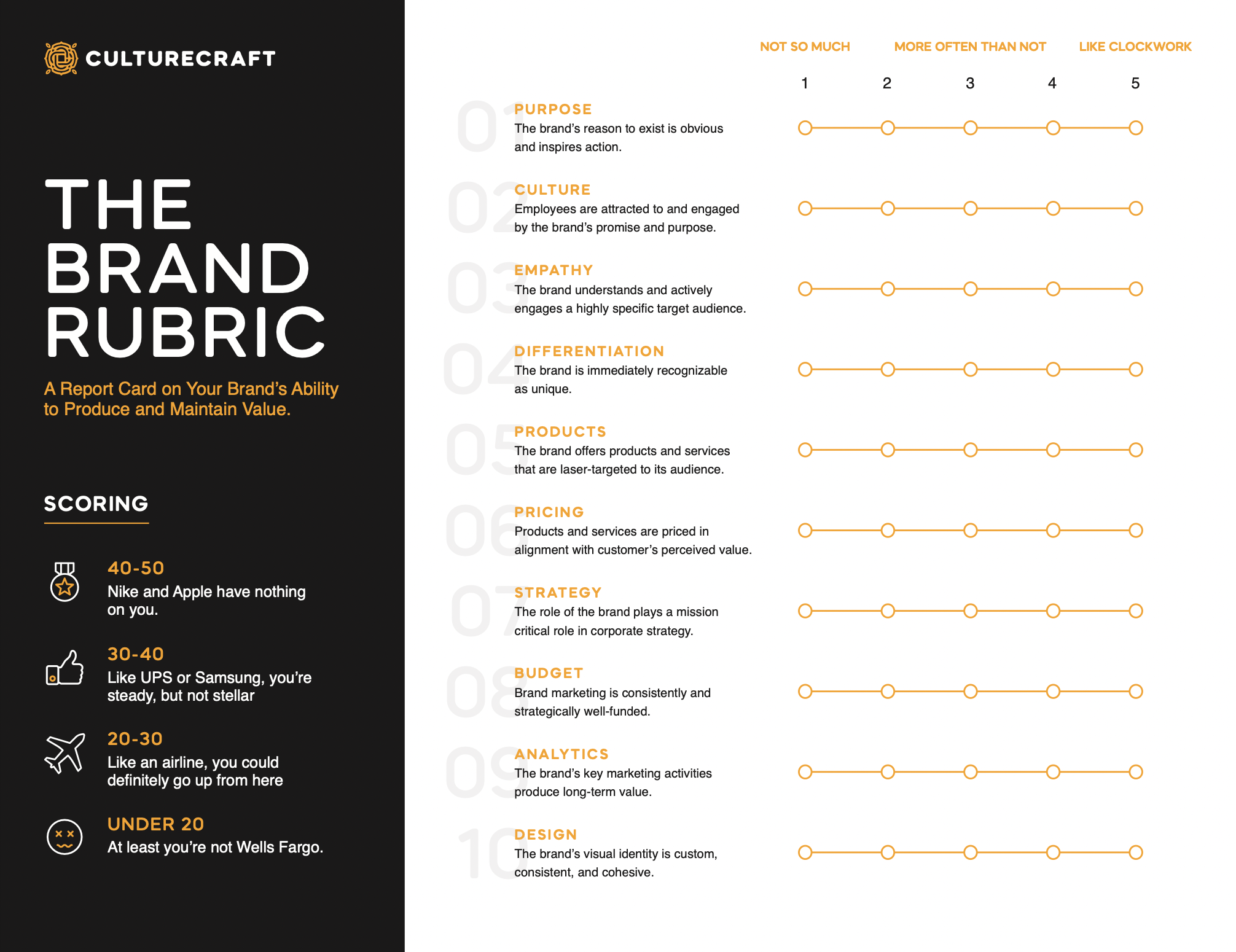Part of your brand may be bleeding the rest dry, but which part?
Some brands and products are simply costing their owners too much.
Too much time, too many resources, too much mindshare, too much of a drain on employees, and too much work trying to convince the public that the brand is something other than what they already believe it is.
CNBC’s story last week (about Facebook employees who worked on the tech giant’s other brands) mentioned an interesting phrase – “brand tax”. As in, the tax Facebook’s brands felt they had to pay because of being associated with the Facebook name.
And no. Your parent company changing their name is not enough of a solution.
This brand tax is crippling.
And it’s especially common with entrepreneurs who practice a kind of umbrella branding – where multiple products or brands (loosely related to one another) are all housed under one name, one development team, one marketing team, and so on.
The tax undercutting the rest of the organization could be an old passion project, new passion project, legacy product, owner’s reputation, or a service or brand that no one has the heart to cut loose. And so it drags behind the rest of the brand, sucking up resources, and ultimately bringing down everything and everyone else.
Some Real Life Brand Taxes
This brand tax brings to mind some notable examples. In many of these cases, one product, brand, or decision was responsible for hamstringing million-dollar or even billion-dollar companies.
-
Mailchimp’s valuable credibility tanking after being acquired by Intuit, a brand known for selling the information of its users.
-
The fleeing of talent from NBC Universal, after being acquired by Comcast, whose customer service reputation is abysmal.
-
Wells Fargo, still struggling to regain customers, after creating millions of fake accounts and having to pay out $3 billion in damages.
-
LG & Dell who despite massive market shares, refused to update their brand in any meaningful ways, and are now hemorrhaging customers and cash.
-
Intel, losing both Apple computers and Microsoft PCs, by not continuing to innovate.
-
HBO’s Game Of Thrones, whose final season alienated audiences, and whose long hiatus has soured the announcement of their forthcoming prequel.
These are snapshots. The list of other brand blunders is seemingly endless, and the ripple effects on the C-suite, employees, and customers similarly disheartening.
If you’re thinking, “There must be a solution!” then you’re right. There is one.
A New Set Of Eyes
In our experience, the first thing lacking in most of these cases is awareness. Many brand owners or executives aren’t even aware that some part of their brand is forcing a tax on the rest of their business. But this naiveté can be extremely detrimental and a hazard to the longevity of the brand.
We believe business owners and executives truly want to see their brands flourish. Yes because of the money, but also because they see the good their brand does in the world, the joy it brings, the convenience it offers, or the insight it gives to others, and they want to do more of that.
So to help owners identify where their brands are fulfilling that aspiration, and where they might be held down by an unknown or unacknowledged weight, we created brand audits. The best audits help owners see if the brand is doing its job, or if the company is burning money and/or opportunity trying to make up for some part that is underperforming.
With the help of the audit, we can identify the parts of a business that are taxing the rest of the brand and stop the loss of audience and value that continues unchecked, every second of the day, until we do. Audits grant their users sight, and sight is invaluable.
For today, we’ve created a mini-audit that you can use anytime, anywhere and made it available for download for free. Because we believe better brands make for a better world, and the best brands have sight for miles.
CultureCraft’s Brand Scorecard
The reality of a brand tax on an unaware C-suite can be hard to swallow. But we’ve learned two lessons from the likes of Facebook, Dell, Mailchimp, and many others:
-
Brand is never neutral – it’s either costing you money or making you money, adding credibility or subtracting it. No brand is ever just “getting by”.
-
The cost of leaving a declining brand or product the same is often astronomically higher than the cost to fix it.
Both lessons have taught us a third: there’s no time to lose.


